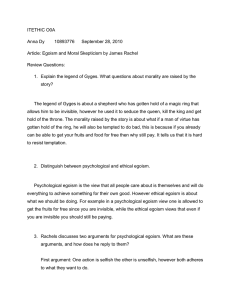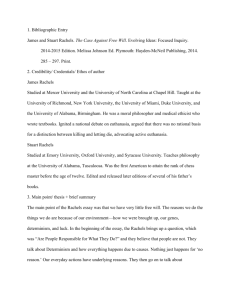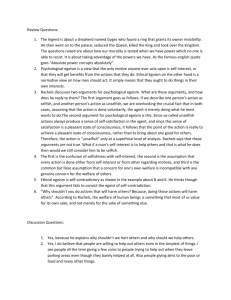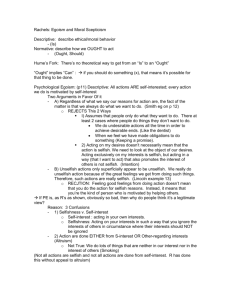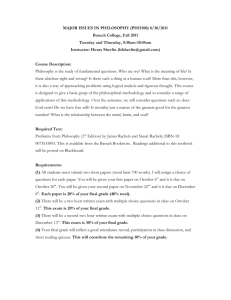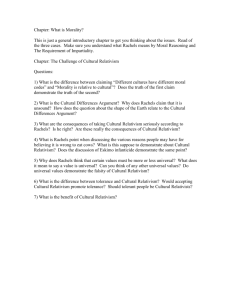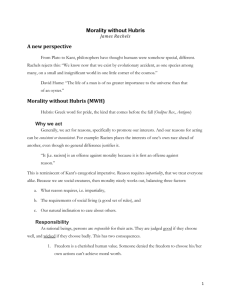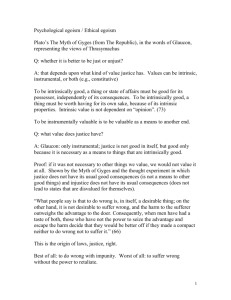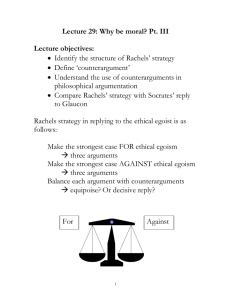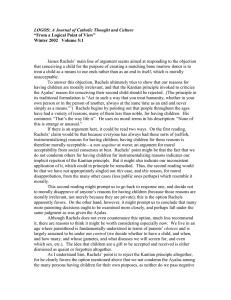Egoism and Moral Scepticism by Rachels
advertisement
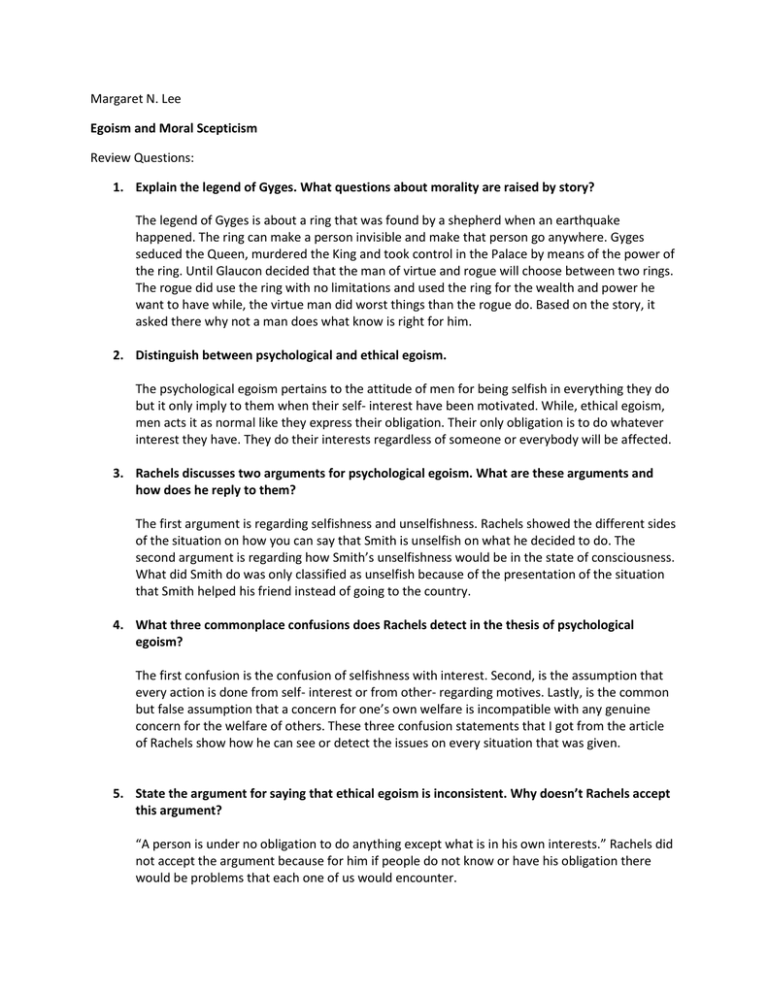
Margaret N. Lee Egoism and Moral Scepticism Review Questions: 1. Explain the legend of Gyges. What questions about morality are raised by story? The legend of Gyges is about a ring that was found by a shepherd when an earthquake happened. The ring can make a person invisible and make that person go anywhere. Gyges seduced the Queen, murdered the King and took control in the Palace by means of the power of the ring. Until Glaucon decided that the man of virtue and rogue will choose between two rings. The rogue did use the ring with no limitations and used the ring for the wealth and power he want to have while, the virtue man did worst things than the rogue do. Based on the story, it asked there why not a man does what know is right for him. 2. Distinguish between psychological and ethical egoism. The psychological egoism pertains to the attitude of men for being selfish in everything they do but it only imply to them when their self- interest have been motivated. While, ethical egoism, men acts it as normal like they express their obligation. Their only obligation is to do whatever interest they have. They do their interests regardless of someone or everybody will be affected. 3. Rachels discusses two arguments for psychological egoism. What are these arguments and how does he reply to them? The first argument is regarding selfishness and unselfishness. Rachels showed the different sides of the situation on how you can say that Smith is unselfish on what he decided to do. The second argument is regarding how Smith’s unselfishness would be in the state of consciousness. What did Smith do was only classified as unselfish because of the presentation of the situation that Smith helped his friend instead of going to the country. 4. What three commonplace confusions does Rachels detect in the thesis of psychological egoism? The first confusion is the confusion of selfishness with interest. Second, is the assumption that every action is done from self- interest or from other- regarding motives. Lastly, is the common but false assumption that a concern for one’s own welfare is incompatible with any genuine concern for the welfare of others. These three confusion statements that I got from the article of Rachels show how he can see or detect the issues on every situation that was given. 5. State the argument for saying that ethical egoism is inconsistent. Why doesn’t Rachels accept this argument? “A person is under no obligation to do anything except what is in his own interests.” Rachels did not accept the argument because for him if people do not know or have his obligation there would be problems that each one of us would encounter. 6. According to Rachels, why shouldn’t we hurt others, and why should we help others? How can the egoist reply? According to Rachels, we should not hurt others because they will be hurt. We should help others because they can get something good on that help which they can benefit with. Based on the article the egoist’s line is “no doubt, will not be happy with this.” Discussion Questions: 1. Has Rachels answered the question raised by Glaucon, “Why be Moral?” If so, what exactly is his answer? Yes because Rachels explained in the article why we should not hurt others and why we should help others. “Why shouldn’t you do actions that will harm others because doing those actions would harm others.” 2. Are genuine egoists rare, as Rachels claims? Is it a fact that most of people care about others, even people they don’t know? According to Rachels, genuine egoists are not merely rare because people do things to help others. 3. Suppose we define ethical altruism as the view that one should always act for the benefit of others and never in one’s own self- interest. Is such a view immoral or not. For me, it is not immoral. Because for me if what you are doing is for the others to benefit, go and do it. Do not think of others or your self- interest.
